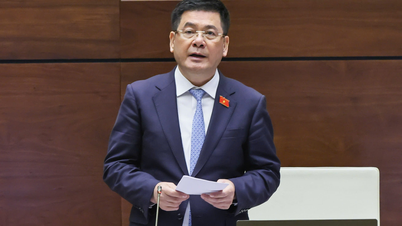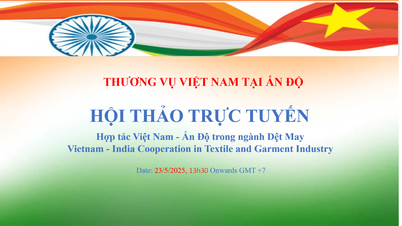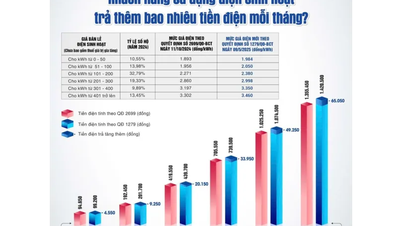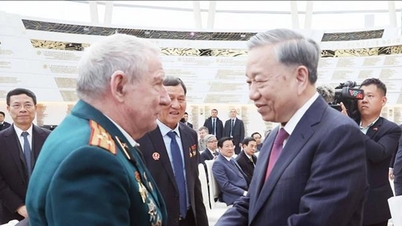1. Risks of consequences of new US tariff policy
Rising prices for goods and services: US tariffs threaten to increase the prices of goods and services that Spanish families pay. This has already increased inflationary pressures, with the consumer price index (CPI) rising to 3% and forecast to continue rising through 2025.
Pressure on household budgets: Spanish households spent nearly half of their budget on housing and food. For the bottom 20% of households, the share of spending on housing and food rose to 63.5%. The trade war has caused prices of everyday products to rise, especially energy, food and imported goods.
Impact on inflation: According to ECB President Christine Lagarde, a 25% US tariff on European products could reduce eurozone GDP growth by up to 0.3% and increase inflation in the short term. If Europe responded with equivalent measures, the loss of growth could be as high as 0.5%.
Food, energy, transportation and technology: These sectors are expected to spend the most in 2025. Food prices in Spain have already risen sharply due to global supply issues and rising commodity prices. In transportation, prices will also be affected by supply chains due to tariffs and trade agreements. In addition, US tariff policies could push global crude oil prices even higher. The imposition of secondary tariffs on countries that buy oil from Russia and Iran could pose significant upside risks to the market.
Energy prices and supply chain: Housing costs (including electricity and gas) increased 9.8% year-on-year. Electricity prices rebound sharply after a decline in 2024. Rising prices for renewable energy components could slow the energy transition and prolong Spain's dependence on gas.
Technology: The consumer technology industry - electronics, home appliances, computers, phones... is one of the most globalized industries and therefore vulnerable to tariff wars.
2. Initial response of the Spanish Government
Reaction after US reciprocal tariff plan announced (April 2, 2025)
Condemnation and criticism: Prime Minister Pedro Sánchez has criticized the US tariffs, describing them as “a return to 19th-century protectionism” and “an attack on everyone and everything.”
Call for EU action: Spain calls on the EU to act in a united manner to counter unilateral US tariffs. Some of the proposals include: Establishing an EU aid fund financed by US import tariff revenues to support affected industries; Asking the European Commission to allow Spain greater flexibility in providing large-scale aid to affected industries; In addition, to reduce dependence on the US market, the government proposes to strengthen trade cooperation with other countries. Prime Minister Sánchez made trade visits to Vietnam and China to expand economic relations and seek new markets, aiming to diversify trade partners.
Domestic response – Large-scale aid package: Immediately after the tariffs came into effect, the Spanish government launched a series of domestic support measures, including a €14.1 billion rescue package. Of this, €7.4 billion was new funding to help businesses stay afloat and protect jobs, while the remaining €6.7 billion was used from existing financial instruments. Support measures included: Providing financial guarantees and soft loans to support liquidity for affected businesses, Launching the MOVES program to stimulate the automotive industry – one of the sectors most sensitive to tariff changes, Investment support, credit insurance and measures to help companies relocate production to new markets.
Pushing for negotiations: The European Commission has proposed a zero-to-zero tariff on industrial goods imported from the US to avoid a trade war. The EU is prioritizing negotiations with Washington to find a favorable agreement, while preparing contingency measures if no agreement is reached.
Retaliatory tariffs: The EU has proposed imposing 25% retaliatory tariffs on a range of US imports in response to President Trump’s tariffs on EU steel and aluminium. The list of goods subject to retaliatory tariffs is wide-ranging and includes diamonds, eggs, dental floss, sausages, poultry, almonds and soybeans.
Reaction after US reciprocal tariff plan takes effect (April 9, 2025)
Trade Response and Relaunch Plan activated: The Spanish government has approved the first €7.72 billion of the Trade Response and Relaunch Plan in response to President Trump's decision to increase tariffs on European products to 20%. The plan includes €14.1 billion to mitigate the negative impact of the trade war and "build a shield" to protect the Spanish economy. The plan includes ICO loans and immediate liquidity for affected businesses, industrial modernization and investment, reorientation of production, and direct aid for the internationalization of small and medium-sized enterprises. As in the pandemic period, the aid will not be unconditional. Beneficiary companies must maintain jobs and not relocate.
Guarantees requested: Spanish Economy and Trade Minister Carlos Cuerpo has asked for guarantees that EU tariffs on the United States do not affect products that are "not easily substitutable" for European companies.
Support at European level: Spain proposes a European-level support instrument for companies and sectors affected by new US tariffs.
The new US tariff policy under the US administration has caused serious consequences for the global economy, including Spain. The direct impact on Spain's GDP may be limited due to the low proportion of exports to the US, but the risk of affecting some key economic sectors cannot be underestimated. The Spanish government's response was expressed through publicly criticizing the US's unilateral protectionist policies, quickly implementing economic support measures and calling for united action from the EU. At the same time, Spain also expanded trade relations with partners outside the US to minimize the negative impact of these unilateral economic measures. Spain's cautious but strong response shows that the solidarity and flexible response capacity of economic blocs such as the EU have become extremely important to protect the national economy and maintain a competitive advantage in the international market./.
Source: https://moit.gov.vn/tin-tuc/thi-truong-nuoc-ngoai/chinh-sach-thue-quan-moi-cua-hoa-ky-tom-tat-he-qua-va-phan-ung-ban-dau-cua-chinh-phu-tay-ban-nha.html


![[Photo] General Secretary To Lam meets and expresses gratitude to Vietnam's Belarusian friends](https://vphoto.vietnam.vn/thumb/1200x675/vietnam/resource/IMAGE/2025/5/11/c515ee2054c54a87aa8a7cb520f2fa6e)

![[Photo] General Secretary To Lam concludes visit to Russia, departs for Belarus](https://vphoto.vietnam.vn/thumb/1200x675/vietnam/resource/IMAGE/2025/5/11/0acf1081a95e4b1d9886c67fdafd95ed)


![[Photo] General Secretary To Lam arrives in Minsk, begins state visit to Belarus](https://vphoto.vietnam.vn/thumb/1200x675/vietnam/resource/IMAGE/2025/5/11/76602f587468437f8b5b7104495f444d)

















![[Photo] National Assembly Chairman Tran Thanh Man attends the Party Congress of the Committee for Culture and Social Affairs](https://vphoto.vietnam.vn/thumb/1200x675/vietnam/resource/IMAGE/2025/5/11/f5ed02beb9404bca998a08b34ef255a6)

























































Comment (0)